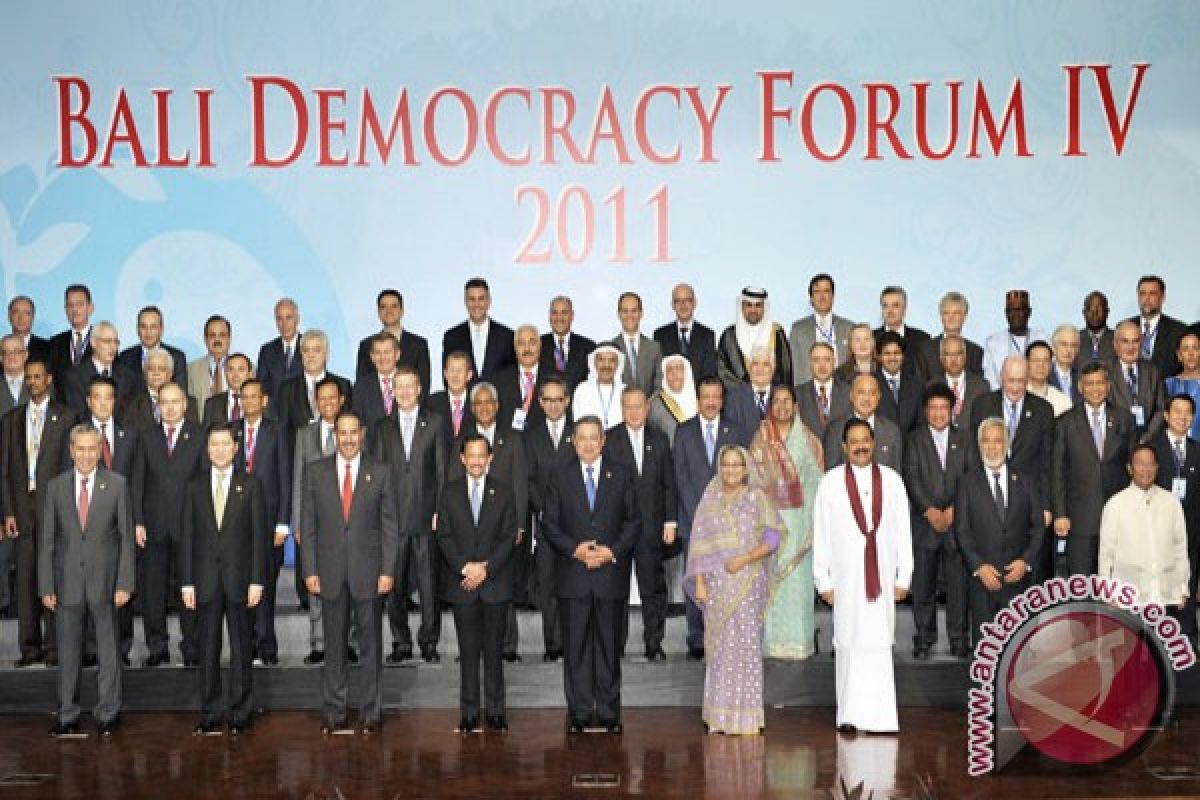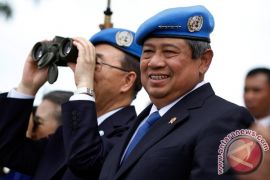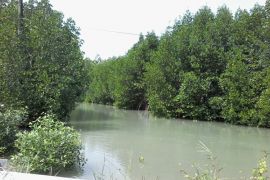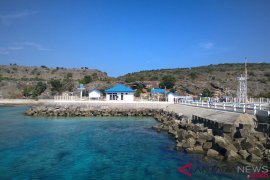Peace also suggests the existence of healthy interpersonal relationships, prosperity in the matters of social and economic welfare, and also a sense of tolerance for the realization of true peace in the country.
Yet violence and acts of terrorism still occurred in 2011 in Indonesia, the world`s most populous Muslim county in a sprawling chain of more than 17,000 islands off the southeastern coast of Asia,
despite repeated calls from various parties for problems to be resolved peacefully.
The welfare of the people can only be realized in an atmosphere of peace which makes it possible for all elements to work together and coexist in peaceful and perfect harmony.
But the end of 2011 was marked with a fresh sectarian violence on December 12 in the eastern Indonesian city of Ambon in Maluku where one of 16 wounded people sustained a gunshot wound on the chest.
A number of houses were also set on fire in the violence, triggered by an exchange of insults and the throwing of fire bombs between the two opposing camps.
Following the violence, police officers seized a number of weapons including molotov cocktails and traditional arrows, machetes and spears.
Ambon police chief Soeharwiyono said the violence was linked to the previous events on September 11, 2011, when street clashes broke out between the Muslim majority and Christian minority.
On December 4, 2011, three civilians were killed in a shooting incident and grenade attack at North Aceh district in Aceh province.
The shooting and grenade attack at the office of the Aceh gubernatorial aspirants pair Irwandi Yusuf-Muhyan Yunan were believed to have threatened the peaceful situation in the Indonesian westernmost province of Aceh.
"We condemn the acts of terrorism committed by by irresponsible persons. Such acts are very detrimental to Aceh," said
Sudarman Alkatiri Puteh, spokesman of a Non-Governmental Organization forum in Aceh province.
Sudarman also hoped the provincial political elites to campaign for the peace and required the communities not to be affected by the the terror.
Acts of terrorism and violence did happen sporadically in 2011 when a suicide bomber detonated an explosive device around noon during Friday prayers on April 15 at a mosque in a police compound in the city of Cirebon, West Java.
The bomber was killed and at least 28 people were injured, most of whom were praying in the mosque.
Later on Sunday on September 25, 2011 a person was killed and several church goers were injured, also in a suicide bombing a Indonesia Full Gospel Bethel Church in Solo, Central Java.
Witnesses said the bomber struck as people were leaving the church in Keputon, Solo, after a Sunday service.
Acts of violence and the issue of peace in Indonesia are not just political and religious matters; they are moral and spiritual issues that have to be solved properly.
Following the violence and acts of terrorism in the country, many parties in various parts of the country in February 2011 called for and declared their commitment to peace.
At the Bajra Sandi monument area in Denpasar, Bali, hundreds of Balinese women in February this year declared an "Indonesian Women`s Association for Global Peace (IWAG-Peace)".
"The declaration of IWAG-Peace is intended to neutralize violent conflicts in the name of religion in various areas across the country," event coordinator Putu Sri Puji Astuti said in Denpasar at the time.
According to Putu Sri, the declaration of IWAG-Peace in Bali was one of four similar events, organized simultaneously in four Indonesian cities namely Denpasar, Surabaya, Yogyakarta, and Jakarta.
She also called on the government to act decisively to resolve conflicts that occur and to prevent them from becoming serious and complicated problems.
Putu Sri pointed out that if the government failed to neutralize emerging conflicts, the IWAG-Peace would unhesitatingly bring them to the United Nations.
"If the government fails to solve emerging problems, the Indonesian women will rise to bring the problem to the international community," she said.
Therefore President Susilo Bambang Yudhoyono called on all Muslims in the country to solve any arising problem in a peaceful and dignified manner.
In his address at a so-called Dzikir Akbar, a mass religious gathering for joint prayers to observe the Prophet Muhammad`s birthday at the south square of the National Monument in Jakarta at the time, the president called on Muslims to emulate the prophet who used to overcome problems peacefully.
"The prophet set examples from which we can conclude that to make great changes in the right direction and to solve problems, it should be done in a peaceful and dignified manner," the president said.
President Yudhoyono pointed out that if all Muslims in Indonesia seriously followed the examples of the Prophet Muhammad, the country would be blessed and all its struggles would succeed.
"Let us make the Prophet`s nature and personality our model, his leadership, his wisdom, and his nurturing nature in our effort to march to a better future," the president said.
The head of state also called on all of his countrymen not to easily give up in facing severe tests and trials.
"Even in difficult situations, we have to be more cohesive, stronger, and more united instead of making noise and blaming each other," the president said.
In Bandung, West Java, religious leaders in February also declared peace following violent acts triggered by religious issues in the country.
The declaration was read out directly by the chairman of the West Java chapter of the Indonesian Council of Ulemas, KH Hafidz Utsman, before hundreds of community members from different religions attending the event.
In the declaration they expressed concern over the conflict between Ahmadiyah Islamic sect members and a mob in Cikeusik, Pandeglang, and Banten.
They also expressed determination to build inter-religious harmony especially in West Java and settle any inter-religious problem through dialog.
Then in the eastern Indonesian city of Ambon, young artists and men of letters of Maluku origin also voiced "The Peaceful Sound from the East for Indonesia" as part of their solidarity against relentless violence in the country.
Meanwhile at a function to open Bali Democracy Forum at Bali International Convention Centre in Nusa Dua, Bali, on Thursday, December 8, 2011, President Yudhoyono said the process of democracy should create freedom, moderate view, and peace.
"Democracy should bring freedom in wider sense for all citizens to live in peace and harmony," the president noted.
The head of state also pointed out that freedom should be accompanied by full compliance with the law and a sense of tolerance, and not be be used to violate the rights of others nor to promote hatred, conflict, and war but peace in the country.
(Uu.O001/HAJM/F001)
Reporter: by Otniel Tamindael
Editor: Priyambodo RH
Copyright © ANTARA 2011











